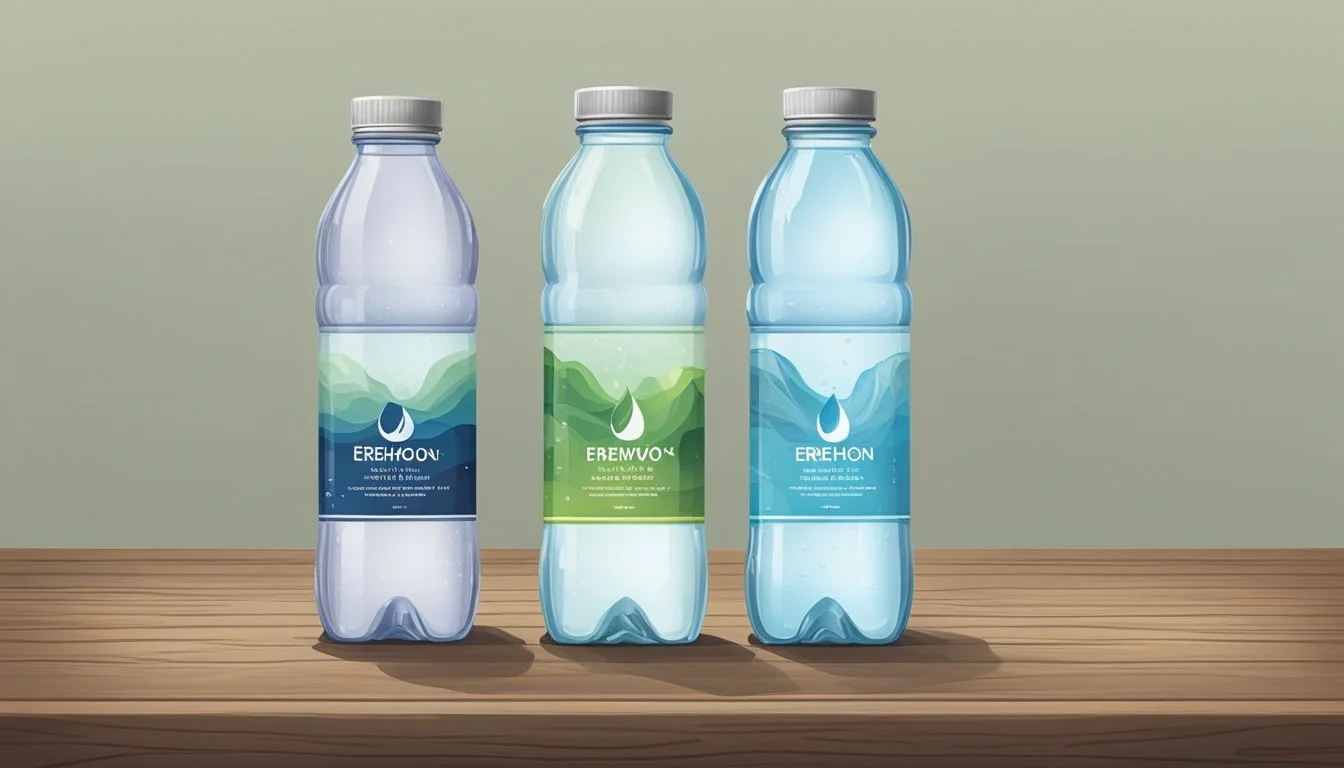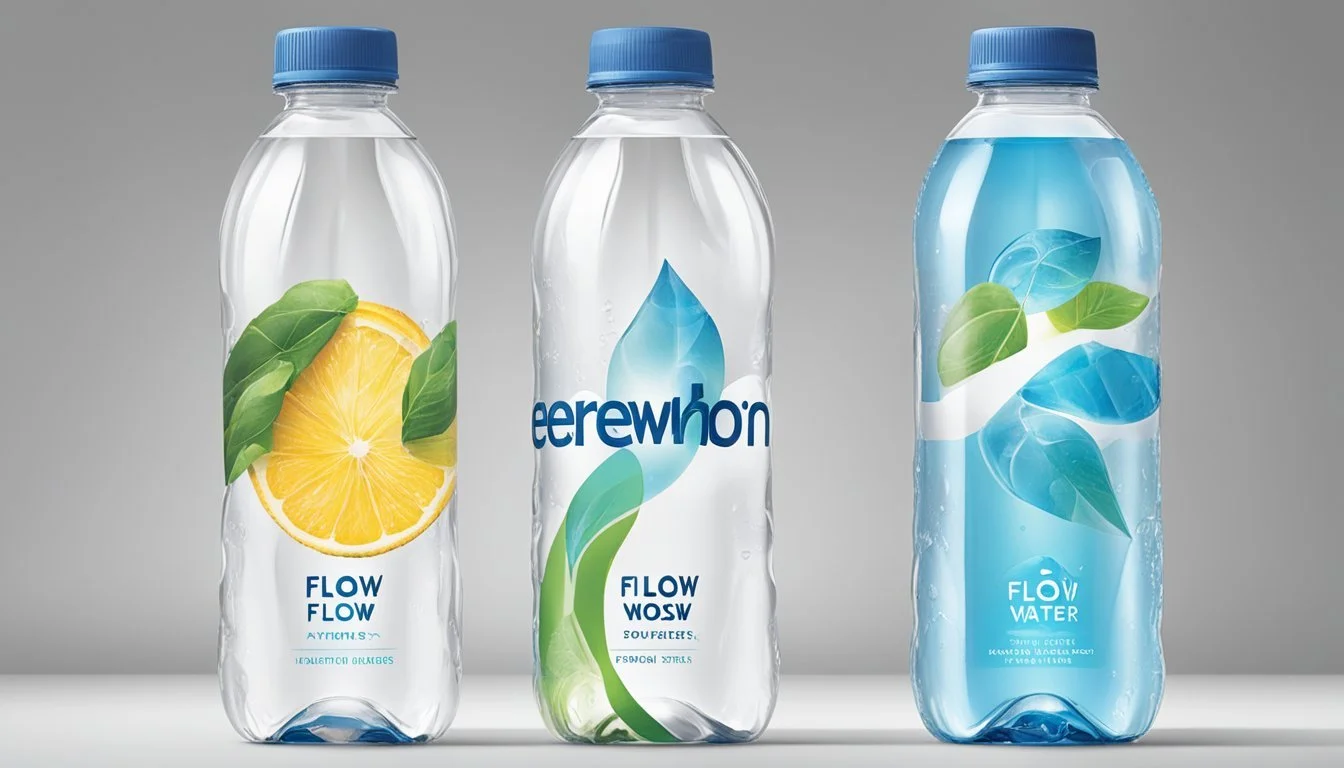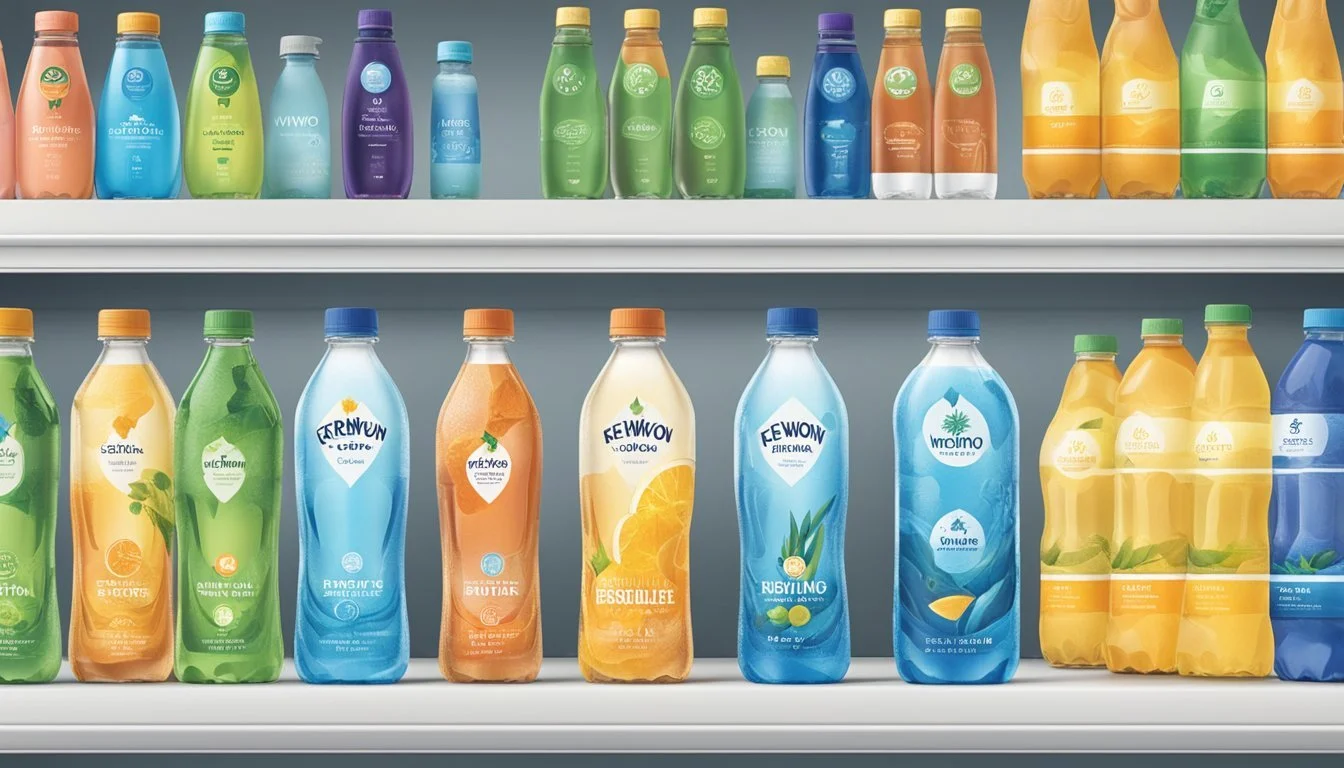Erewhon vs. Flow
Which Bottled Water is Better? A Comprehensive Comparison
Choosing the right bottled water can make a significant difference in one’s hydration routine, especially when considering esteemed options like Erewhon and Flow. Erewhon, often synonymous with premium grocery products, offers bottled water that prides itself on purity and mineral content. Flow, on the other hand, is renowned for its eco-friendly packaging and naturally alkaline properties, appealing to health-conscious consumers.
Flow stands out with its BPA-free, recyclable Tetra Pak packaging and alkaline pH levels, which some believe can aid in balancing the body's pH levels and improving overall hydration. Erewhon, with its reputation for sourcing high-quality ingredients, provides a reliable and clean hydration option, free from contaminants and additives.
Both brands cater to different aspects of health and sustainability. Whether you prioritize mineral content and taste or environmental impact, the comparison between Erewhon and Flow highlights key qualities that make each unique.
Demystifying Bottled Water
Bottled water has become a staple in many households. It can be sourced from springs, wells, or even municipal supplies. Each source offers unique qualities and tastes.
Frequently, bottled water is marketed as being superior to tap water. This perception mainly hinges on convenience and the belief in its purity.
Price Comparison:
Tap Water: Costs approximately $0.005 per gallon in the U.S.
Bottled Water: A gallon can cost up to $9.47 when derived from single-serving bottles.
Is bottled water healthier? This is a common question. Bottled water often claims to be free from contaminants. Yet, tap water in many regions undergoes rigorous testing and complies with strict safety standards.
Convenience and Health:
Bottled water is readily available and portable.
Tap water is inexpensive and lessens environmental impact.
Environmental Considerations:
The plastic waste from bottled water is staggering. Recycling helps, but not all plastic bottles get recycled.
Opting for tap water reduces this waste but might require using a filter for better taste or safety.
When deciding between bottled water and tap water, consider cost, convenience, and environmental impact. Both can provide adequate hydration and health benefits. It's essential to choose what aligns best with personal circumstances and values.
Erewhon and Flow: Brand Overviews
Erewhon and Flow represent distinct facets of the premium bottled water market, each with unique attributes and histories that cater to discerning consumers. Understanding the backgrounds of these brands offers insight into their market positions and consumer appeal.
Erewhon: Company Background
Erewhon began as a high-end organic grocery store based in Los Angeles, renowned for its commitment to health and wellness. The brand has evolved into a cultural phenomenon, known not just for its premium grocery items but also for being a status symbol among celebrities.
Products include organic produce, specialty health items, and expensive smoothies. Celebrities like Jason Momoa and Bella Hadid frequently endorse Erewhon, boosting its appeal.
Apart from its Los Angeles roots, Erewhon sets itself apart with its exclusive product range and luxury branding, making it a go-to for health-conscious consumers who prioritize quality and prestige.
Flow: Brand History
Flow, established in Ontario, Canada, has made its mark in the premium water segment through its commitment to sustainability and health. The brand offers naturally alkaline spring water that is mineral-rich and packaged in eco-friendly Tetra Pak cartons.
Flow capitalizes on the increasing demand for eco-conscious products. Its branding is less celebrity-focused and more about environmental responsibility and consumer health.
Available in flavors like cucumber-mint and lemon-ginger, Flow appeals to those seeking purity and a health-centric lifestyle. While it does not boast the same celebrity endorsements as Erewhon, it stands out through its sustainability efforts and dedication to providing high-quality, natural water.
Quality and Safety Standards
Erewhon and Flow adhere to various quality and safety standards to ensure the water is safe for consumption. Both brands must comply with strict regulations, conduct regular quality checks, and maintain consumer trust through transparent reporting.
Regulations and Compliance
Erewhon and Flow bottled water are regulated by the FDA, which enforces the quality standards set by the Environmental Protection Agency (EPA) for safe drinking water. Both brands must consistently meet the legal limits for contaminants such as heavy metals, lead, and other harmful substances.
Regular inspections and compliance with international safety standards are necessary to ensure the water is free from any health hazards. This includes purification processes like distillation and reverse osmosis.
Quality Reports and Consumer Trust
Transparency is crucial for brands like Erewhon and Flow. They routinely publish quality reports detailing the presence of any contaminants and the steps taken to eliminate them. This builds consumer trust by providing evidence that the water meets all required safety and quality standards.
The reports cover various parameters, including the detection of chemicals and plastic-derived contaminants. By maintaining high-quality standards and openly sharing the results, both brands aim to assure their consumers of the safety and purity of their products.
Taste Profile Comparison
Erewhon and Flow both offer unique taste experiences, influenced by their distinct water sources and the resulting mineral compositions. A comparison of these brands reveals how their origins impact their taste profiles.
The Significance of Source
Erewhon sources its water from remote natural springs in the United States. These springs are renowned for their pure, clean water, influenced by surrounding geology. The mineral content is balanced, contributing to a crisp and refreshing taste.
Flow, on the other hand, is sourced from artesian springs in Canada. This water is naturally alkaline with a pH level around 8.1. The artesian origin gives Flow its characteristic smooth and slightly sweet taste, making it a popular choice for those who prefer mild mineral notes.
Professional Taste Test Findings
Taste tests often highlight Erewhon's bright, neutral flavor profile. The spring water's purity results in a taste that is straightforward and clean, with minimal aftertaste, catering to those who favor simplicity and clarity in their bottled water.
Flow's taste is described as smooth and subtly sweet due to its alkaline nature. Professional tasters appreciate its velvety texture and mild mineral undertones, which provide a sense of richness without overwhelming the palate. Its artesian source contributes to a unique flavor profile that stands out among bottled waters.
Different water sources and mineral compositions distinctly influence the taste experience of Erewhon and Flow. These characteristics are pivotal in their positioning as premium bottled water brands.
Environmental Impact
When comparing Erewhon and Flow bottled water, the environmental impact is a crucial factor. This includes considerations of eco-friendly packaging initiatives and the sustainability and resource management practices each company employs.
Eco-Friendly Packaging Initiatives
Both Erewhon and Flow have made strides in eco-friendly packaging. Erewhon uses recyclable plastic bottles that reduce waste but still pose concerns regarding microplastics. Flow, however, utilizes Tetra Pak cartons, which are primarily paper-based and boast a lower environmental footprint due to their recyclability and renewable material sources.
Flow's cartons are designed to minimize plastic use and are BPA-free, addressing concerns about PFAS chemicals. In comparison, Erewhon's bottles, while recyclable, contribute more significantly to plastic pollution.
Sustainability and Resource Management
In terms of resource management, Erewhon sources groundwater responsibly, ensuring minimal impact on local ecosystems. They have implemented measures to avoid over-extraction, protecting natural water reserves. Flow, on the other hand, sources water from natural springs and boasts carbon-neutral operations, reducing their overall carbon footprint.
Flow's production process results in lower CO2 emissions compared to Erewhon. This is crucial in an era where greenhouse gas reduction is vital. Both companies aim to offer a more environmentally friendly choice but differ in their approach and effectiveness in sustainability efforts.
Consumer Accessibility
Erewhon and Flow differ in price points and where they can be purchased. Both brands aim to provide quality but their consumer accessibility can vary significantly.
Price Comparison and Value
Erewhon typically features higher price points for their bottled water. This premium cost aligns with their brand image and product quality. Consumers may find Erewhon water around $3 to $5 per bottle.
On the other hand, Flow offers more competitive pricing. Flow’s waters generally range from $1.50 to $3.00 per bottle. This makes Flow a more budget-friendly option for those who want quality water at a lower cost.
Below is an approximate price comparison:
Brand Price per Bottle Erewhon $3.00 - $5.00 Flow $1.50 - $3.00
Availability: Grocery Chains and Online Stores
Erewhon water is largely available through upscale grocery stores and specialty markets. These include premium outlets like Whole Foods and Erewhon’s own stores. Availability can be more limited, affecting the convenience for some consumers.
Flow water enjoys broader accessibility. It's available not only in high-end grocery chains but also in widespread retailers like Trader Joe’s. Additionally, Flow products can be purchased online through major e-commerce platforms, ensuring higher availability and convenience for consumers.
By being stocked in more diverse outlets, Flow can potentially reach a larger customer base. This widespread availability also caters to the demand for easily accessible, quality bottled water.
Health Implications
When comparing Erewhon and Flow bottled waters, it's important to investigate the health implications, particularly in terms of hydration and nutritional content, as well as the risk of contaminants.
Hydration and Nutritional Content
Erewhon bottles natural spring water rich in essential minerals such as calcium and magnesium. These minerals contribute to better hydration and overall body function. Flow, on the other hand, markets itself as an alkaline water with a higher pH, which some believe provides enhanced hydration and improved balance in the body's pH levels.
Despite the claims of superior hydration, scientific evidence supporting alkaline water's benefits remains limited. Both Erewhon and Flow provide adequate hydration, but their mineral content and pH levels differ. Consumers should choose based on their specific hydration needs and preferences.
Contaminant Risks and Mitigation
One significant concern with bottled water is the potential presence of contaminants like PFAS chemicals, heavy metals, and microplastics. Erewhon ensures rigorous filtration processes to minimize these risks, adhering to safety standards and regulations.
Flow promotes its water as being free from contaminants, emphasizing the natural filtration through limestone. Yet, bottled water in general faces scrutiny over microplastic contamination due to packaging materials. Investigations have found varied levels of microplastics in numerous bottled water brands, so selecting a brand with robust safety certifications is advisable.
Both Erewhon and Flow take steps to mitigate contaminant risks, though consumers should remain informed about the possible hazards linked to bottled water consumption.
Packaging and Convenience
Consumers are becoming increasingly aware of the environmental impact of bottled water. This has led them to scrutinize the packaging and convenience of brands like Erewhon and Flow.
Bottle Design and Portability
Erewhon offers water in glass bottles, which are not only visually appealing but also preserve the taste of the water. Glass is heavier than plastic or carton options, making it less portable and more prone to breakage. This can be a drawback for consumers looking for lightweight and durable packaging for active lifestyles.
Flow water, on the other hand, is packaged in cartons comprised of a blend of paper, plastic, and aluminum. This makes Flow's packaging lightweight and more suited for on-the-go use. The cartons are designed for easy gripping and storage, enhancing portability. Both brands aim to be eco-friendly, but the packaging materials used differ significantly in terms of convenience and practicality.
Reusable vs. Single-Use Bottles
Erewhon’s glass bottles are reusable, offering an environmentally friendly option for consumers interested in sustainability. These bottles can be refilled multiple times, reducing the number of single-use plastics in circulation. Reusability makes them an ideal choice for those committed to reducing waste.
Flow water’s cartons, however, are designed for single use. Despite being made from renewable resources, they are not as easily recyclable as glass. The single-use nature of Flow’s cartons means that consumers will need to dispose of them after use, which doesn't support long-term sustainability as effectively as reusable options. This distinction can be crucial for environmentally conscious consumers evaluating which product aligns best with their values.
The Bottom Line
When comparing Erewhon and Flow, taste is a crucial factor. Erewhon offers a crisp, clean flavor, while Flow delivers a more mineral-rich taste. Both brands prioritize health benefits, with Flow emphasizing its alkaline pH and natural electrolytes.
Erewhon
Taste: Crisp and clean.
Source: Natural springs.
Health: Purity-focused, free from additives.
Flow
Taste: Mineral-rich.
Source: Artesian springs.
Health: Alkaline pH, natural electrolytes.
In terms of environmental friendliness, Erewhon and Flow both take steps to reduce their carbon footprint. Flow uses eco-friendly packaging made from renewable resources, while Erewhon focuses on sustainable practices from sourcing to bottling.
Environmental Efforts
Erewhon: Sustainable sourcing and practices.
Flow: Eco-friendly packaging.
Convenience is also a factor for consumers. Both brands offer various packaging options, from single-serving bottles to larger quantities suited for home or office use. Availability in major retail stores and online platforms adds to their convenience.
Choosing between Erewhon and Flow depends on personal preferences regarding taste, health priorities, and environmental values.
More About Erewhon
Erewhon vs Kirkland Signature: Which Bottled Water is Better?
Erewhon vs Richard's Rainwater: Which Bottled Water is Better?
Erewhon vs Whole Foods Italian Still Mineral water: Which Bottled Water is Better?
Icelandic Glacial vs Erewhon: Which Bottled Water is Better?
Mountain Valley Spring Water vs Erewhon: Which Bottled Water is Better?






